Opinion: women’s history, her story
Though women have not always been well represented in world affairs, they have always been involved in some way, whether that be by raising a well-behaved family or protesting for their freedoms. In this article, I give a brief history of some of the most influential women to me.
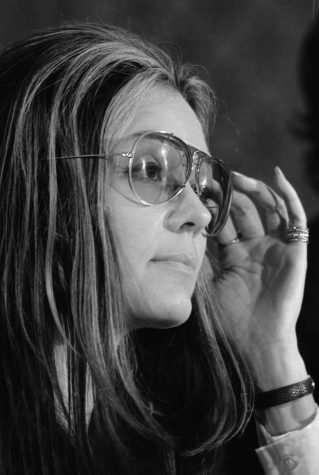
Gloria Steinem was a journalist and feminist born in 1934. Throughout her life, she acted to support gender equality. She began her career in journalism, writing pieces for various publications. She was frequently restricted to writing only lifestyle pieces. Later, she was hired by Show magazine to go undercover as a Playboy Bunny to expose the sexist and underpaid life of those working at the Playboy Club.
Eventually, Steinem was taken more seriously in the world of journalism and founded the New York magazine where she wrote political pieces, especially regarding the Women’s Liberation Movement. Steinem has continued to advocate for the feminist movement and was rewarded the Presidential Medal of Freedom by former President Barack Obama.
Steinem is a brave woman for protesting and going against the gender norms of the time, and her work as an American journalist has opened up many opportunities for women they wouldn’t have otherwise. I look up to her because of her strong leadership character and her will to fight for what she wants.
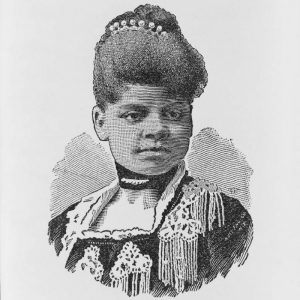
Ida B. Wells was an anti-lynching activist during the late 1800s and early 1900s. She worked tirelessly to spread awareness of lynchings and put a stop to the awful white mob violence in America by publishing articles and newsletters exposing the reality of lynchings and questioning the “manliness” white men of this time prided themselves on.
She joined forces with Frederick Douglass to write “The Reason Why the Colored American Is Not in the World’s Columbian Exposition.” In the pamphlet, Wells and Douglass questioned why “Colored Americans” were not featured in the exposition, other than the Midway Plaisance, which was an ally that depicted all non-white races as “barbarians,” when they contributed greatly to the birth of the nation.
Wells was not only an immense force who advocated for anti-lynching laws, but she did it by appealing to white men’s need to be seen as “manly.” Wells is the perfect example of a woman stepping out of “her place” and advocating for others. I find her inspiring because she used the misogynistic ideals of her times in her favor by discrediting the virility men held close to their hearts.

While people mainly know Taylor Swift from her beautifully constructed music, she uses her fame to stand up against misogyny and advocate for the LGBTQ+ community. As a highly successful female in the music industry, Swift has faced many situations that paint her as the bad guy just because she is a woman.
In her song “The Man,” Swift compares the way women are treated to the way men are treated in the world. Being such a prominent female in the music industry talking about misogyny, Swift is a phenomenal role model for young girls. I think it is especially courageous of her to stand up for her own beliefs in politics to help others, even if it means she will lose fans.
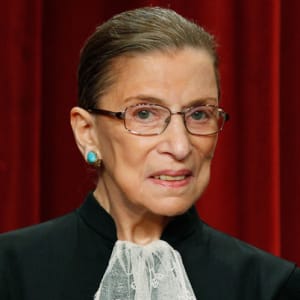
Ruth Bader Ginsburg, the second woman to be appointed as a U.S. Supreme Court justice, spent her life advocating for gender equality in legislation. Before she was appointed as a justice, she directed the work of the ACLU Women’s Rights Project which established the legal foundations for prohibiting sex discrimination. As a justice, she wrote the decision in “United States v. Virginia” which stated that the Virginia Military Institute could not refuse women. She then won the American Bar Association’s Thurgood Marshall Award for her advocacy for civil rights and gender equality. Ginsburg’s work-ethic and tenacious mind are things everyone should aspire to emulate and she is a powerhouse who deserves to be admired by all young girls who dream of success.
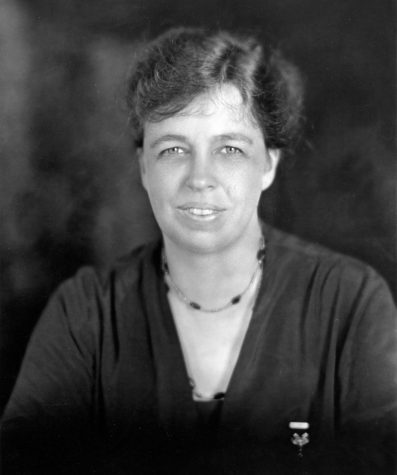
Eleanor Roosevelt was the first lady to Franklin D. Roosevelt. During her time as the first lady, she used her status to advocate for child welfare, housing reform and equal rights for women and minorities. She used to hold press conferences for women, which forced publications to hire women.
After FDR died, Roosevelt joined the United Nations and was the chairman of the Commission on Human Rights from 1946-1951. At this time, women hadn’t even had the right to vote for more than 30 years, but Roosevelt was a force to be reckoned with in the world of politics. This dauntlessness of being a woman in politics and having strong opinions outside of the domestic sphere gives young girls an understanding of their potential in this world.
There are so many more influential women to have walked this Earth. Even everyday women have an impact on the world. It is time to start noticing the accomplishments of everyone, including women, BIPOC and other minorities.

Senior Kate Knauff is the news section editor and this is her third year on staff. She enjoys drinking coffee, hanging out with her friends and watching...






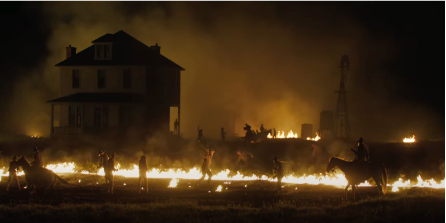





![Junior Chase Harris watches JJ Hatcher’s family being recognized on the field. Harris and Hatcher were close friends, playing baseball together since they were kids and playing football together in high school. “[The game] makes me sad,” Harris said. “But it definitely feels really good because [JJ] will be there in spirit and be with us, cheering us on and running alongside us.”](https://www.hebronhawkeye.com/wp-content/uploads/2023/08/IMG_2267.JPG_YES-600x400.jpg)